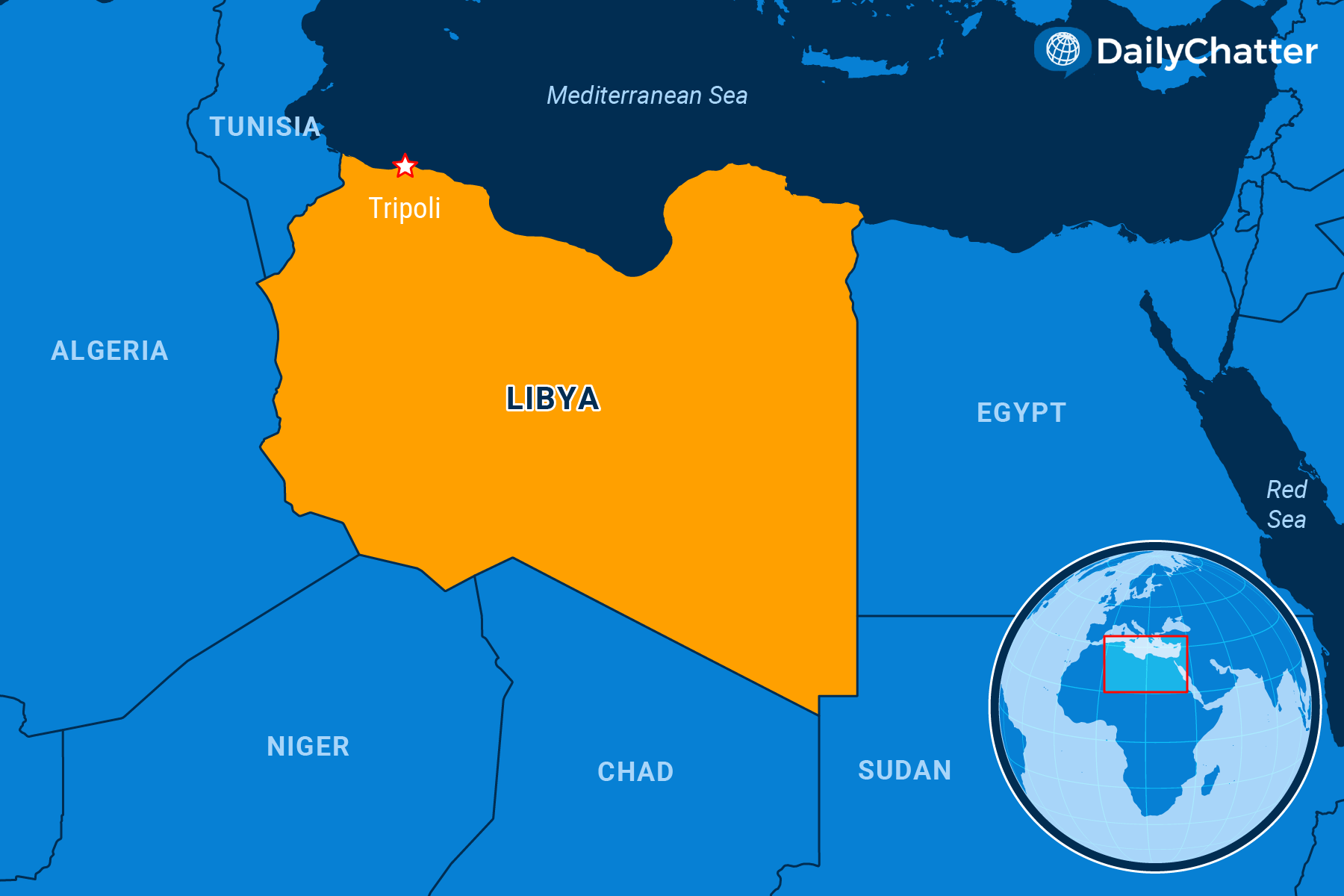
The World Today for September 27, 2021
NEED TO KNOW
Divided We Stand
LIBYA

Libya has remained divided since the fall of dictator Muammar Gaddafi following an uprising a decade ago.
Recently, lawmakers based in the eastern part of the country passed a no-confidence vote against the government of Prime Minister Abdul Hamid Dbeibah based in the capital of Tripoli in the west, reported the Washington Post. Dbeibah has been in office since March when these same lawmakers approved his appointment after United Nations-sponsored negotiations.
That vote set off protests in the capital over the weekend, the AP reported.
The two sides have been fighting over how to hold presidential and parliamentary elections later this year to end the rule of two governments – one in the east and one in the west. Lawmakers in the east are pushing for an election law that is “clearly tailor-made for Khalifa Haftar, the military strongman who controls eastern Libya,” wrote Agence France-Presse. Officials in the west are resisting that proposal.
As the politicians debate, the fighting rages. Violence in Tripoli recently reached levels that haven’t been seen since eastern and western forces ceased fighting a year ago to reach a political settlement, Reuters reported. Clashes have also been flaring up in other parts of the North African country. Around 20,000 mercenaries and hundreds of Turkish soldiers are in the country, too. The Islamic State is also active in the country.
Many Libyans have taken to the sea in often-dangerous bids to find a safe haven in Europe, as the Associated Press explained. European naval and non-governmental organization vessels have picked up and returned around 24,000 Libyan migrants to their native land.
Meanwhile, women picked up at sea have detailed horrific treatment at the hands of armed militias who run sections of Libya. They told the New Humanitarian how guards in Libyan camps designed to prevent migration to Europe raped women, shot children and extorted others in exchange for basic necessities. Human Rights Watch recently appealed to the UN to renew the mandate of a UN fact-finding mission in the country in order to keep monitoring and documenting the abuses.
Algeria, Egypt, Tunisia, Chad and Libya’s other neighbors – all grappling with serious internal political, security and economic problems themselves – are also worried that the instability across their borders will be imported into their countries, wrote Yasmina Abouzzohour, a visiting fellow at the Brookings Doha Center.
There is some room for hope. Libya’s public oil company has opened an office in London to partner with other companies that can help boost production, Bloomberg noted. The country has Africa’s largest oil reserves but is only pumping 1.2 million barrels a day. Officials hope to increase that number to 2 million barrels, boosting revenues that are vital to the country’s future.
But first, crucially, come the elections, scheduled for Dec. 24. That is when many hope that two governments can finally become one.
To read the full edition and support independent journalism, join our community of informed readers and subscribe today!
Not already a subscriber?
If you would like to receive DailyChatter directly to your inbox each morning, subscribe below with a free two-week trial.
Support journalism that’s independent, non-partisan, and fair.
If you are a student or faculty with a valid school email, you can sign up for a FREE student subscription or faculty subscription.
Questions? Write to us at [email protected].
